Jim Chalmers moves to calm Australian markets over Donald Trump
Jim Chalmers has moved to reassure markets that Donald Trump poses a minimal economic risk to Australia, as an ex-Home Affairs boss warns of a grave risk to the defence budget.
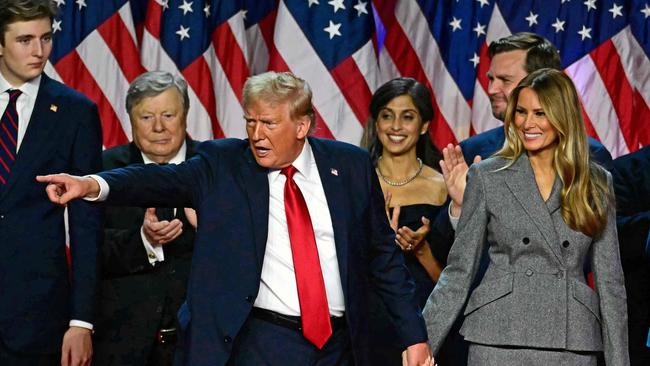
Jim Chalmers has moved to reassure domestic markets an isolationist US policy agenda under Donald Trump would have a minimal immediate impact on the Australian economy, but warned of potential longer-term impacts of a US tariff war with China.
The diplomatic entreaty from the Treasurer to calm concerns about domestic impacts comes amid warnings the Albanese government faces potential demands for a $25bn-a-year increase in defence spending, with expectations a Trump administration would ask allies to lift military spending to at least 3 per cent of GDP.
In an address to the National Conference of the Australian Institute of International Affairs on Monday, former Department of Home Affairs secretary Mike Pezzullo will warn that Australia’s “parlous” defence capability gap would be a significant liability with the Trump administration.
The sober warning about Australia’s weakened defence posture comes as Australian officials in Washington scramble to assure the US of Australia’s defence commitments to ensure a smooth transition to the AUKUS nuclear submarine deal.
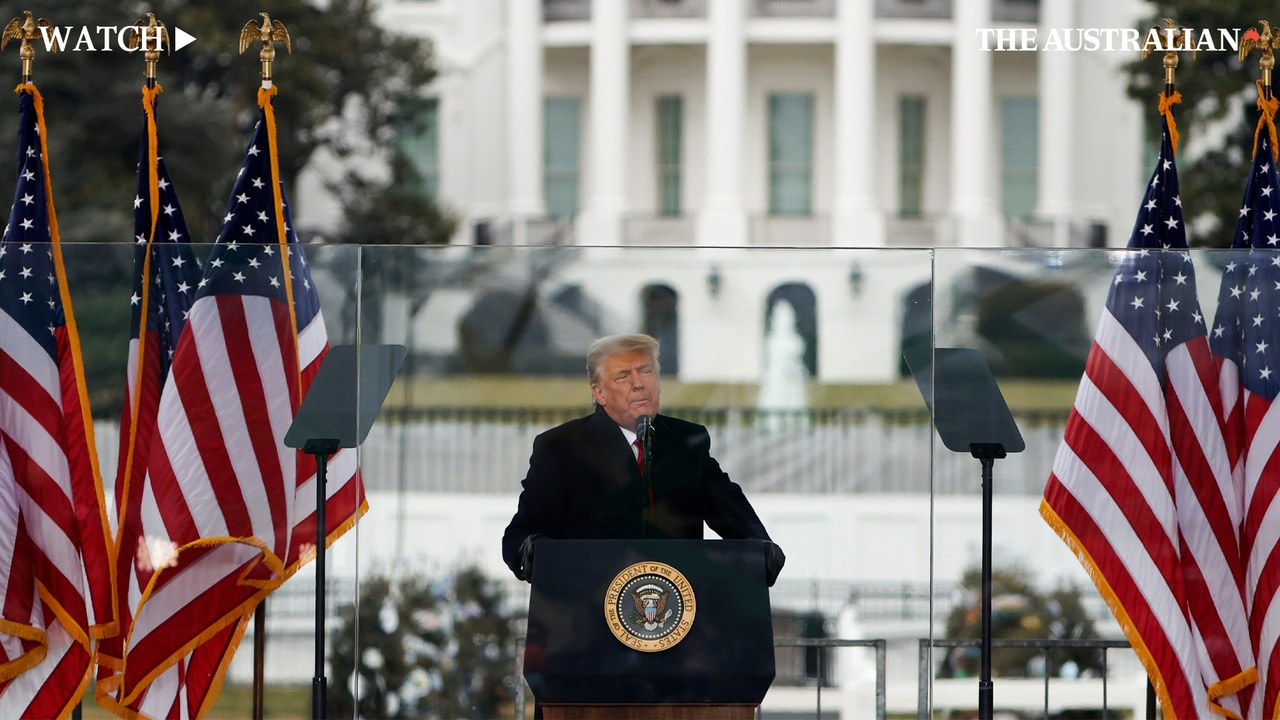
One of Mr Trump’s first moves affecting Australia has been the decision not to appoint former secretary of state Mike Pompeo, who has a close relationship with ex-prime minister Scott Morrison, to his administration.
Australian officials had hoped that Mr Pompeo – a strong supporter of AUKUS and a China hawk – would be an ally in the next White House.
In a speech to the Australian Institute of Public Affairs on Monday night, Dr Chalmers will reveal that Treasury modelling of the impact of known Trump policy would deliver only a “small reduction in our output and additional price pressures, particularly in the short term”.
“But specific features of our economy – like a flexible exchange rate and independent central bank – would help mitigate against some of this,” Dr Chalmers will say.
“Globally, the impact was much more substantial. The timing of this, and the responses and ramifications that might follow – what economists call second-round effects – are difficult to predict.
“But we wouldn’t be immune from escalating trade tensions that might ensue. This is consistent with the views expressed last week by the Prime Minister, Treasury secretary, Reserve Bank governor, and CEO of the National Australia Bank.”
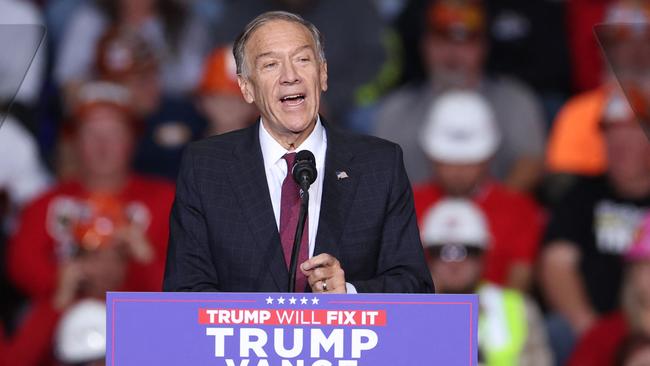
Dr Chalmers has privately assured investors that he will take a forward-leaning posture with Washington on economic policy, in the belief that a Trump administration offers economic opportunity for Australia in the key minerals sector.
A government source said the Treasurer was seeking to “calm the farm” over fears that a Trump administration would have inflationary and economic impacts for Australia.
“Now with the result known, we’ve seen markets respond in pretty dramatic ways,” Dr Chalmers will say.
“The markets expect change, and so do we … but our relationship with America under presidents and prime ministers from all sides is strong and enduring. Our Prime Minister was among the first to talk to President Trump after his victory.
“Of course we expect the incoming US administration to bring a different suite of policies.
“And we are confident in our ability to navigate that change, as partners. Nobody should underestimate our ability to make it work. We are well placed and well prepared.”
Dr Chalmers also joined the chorus of Labor ministers defending Kevin Rudd’s continuation as ambassador to Washington, amid criticisms of the former prime minister’s past claims Mr Trump was a “traitor to democracy”.
Labor’s defence of Dr Rudd came despite the personal attacks many ALP colleagues launched against him during the last Labor government to justify his removal as prime minister.
“Here I pay tribute to Kevin Rudd,” Dr Chalmers says in his address.
“As the Prime Minister and Penny Wong made clear last week, Kevin is doing an excellent job as Australia’s ambassador to the United States.
“Helping to strengthen the alliance. Finding new areas for us to deepen economic co-operation. And building good relationships with Republicans and Democrats alike.
“I’ve seen this for myself. Prior to the US election, Ambassador Rudd helped many of us build and deepen our connections across the political aisle.”
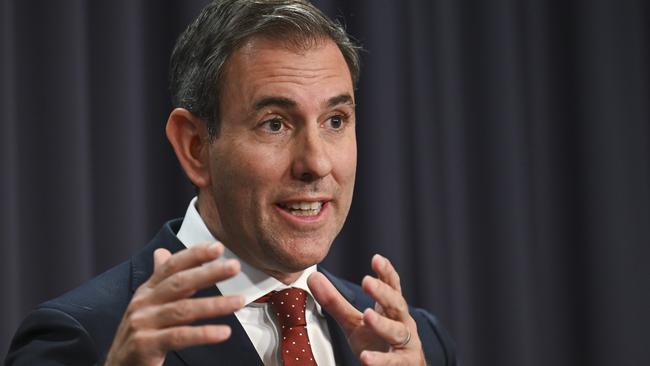
Dr Chalmers attempts to soothe concerns economically and diplomatically, however it comes as Mr Pezzullo, a former Labor government defence analyst, warned of significant budgetary impacts in relation to defence spending.
“Trump will be prepared to continue to extend US security to those who are prepared to do more to defend themselves, so long as doing so is also in the interest of the United States,” Mr Pezzullo said.
“Those who spend less on defence than the United States (at least 3 per cent of GDP) will either have to lift their spending or make commensurate in-kind contributions to their own security.
“Australia is well placed to make or extend mutually beneficial deals with the second Trump administration – especially in relation to critical minerals, the production of nuclear-powered attack submarines at a faster rate, advanced military technology, and further access to our geographically crucial facilities and infrastructure.
“However, our weak levels of defence spending will become a point of contention if it is judged that we are not doing more to ensure the self-reliant defence of Australia.”
“(The Trump administration) would prefer that we secure our own homeland, something that will require the defence/GDP spending ratio to increase almost immediately to 3 per cent.
“For Trump, equitable burden-sharing matters. Australia is not a freeloader – except when it comes to our level of defence spending.
“Australia will not be on its own in this regard. All US allies and partners will come under pressure to increase defence spending to at least 3 per cent of GDP. This will not be a ‘shakedown’. It will be a function of the United States finally forcing others to take on their share of common tasks.”
An increase to 3 per cent spending of GDP, compared to the current trajectory of just above 2 per cent, would require a commitment that would cost an estimated $25bn a year more in defence spending from the budget.
Mr Pezzullo, who was removed from his job as the head of Home Affairs following the leaking of private messages in which he was critical of former government ministers, was a former defence adviser under Kim Beazley.
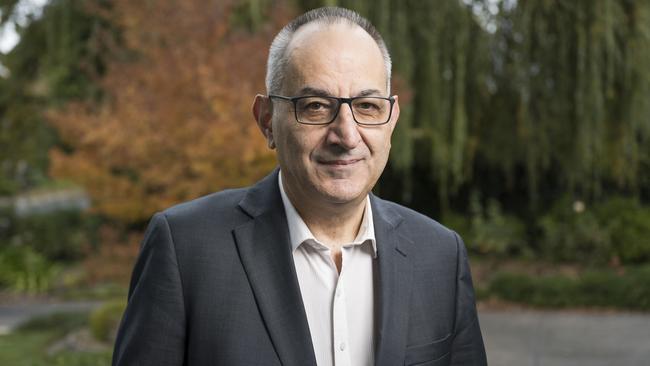
In an opinion piece published in The Australian, Mr Pezzullo writes that while Australia is well placed to make or extend mutually beneficial deals in relation to critical minerals, the production of nuclear-powered attack submarines at a faster rate, advanced military technology, and further access to our geographically crucial facilities and infrastructure, Australia’s weak levels of defence spending would become a point of contention.
“We should avoid thinking that we have to pay our ‘dues’ to Trump, in an attempt to curry favour,” Mr Pezzullo told The Australian ahead of his address.
“Doing so would not raise us in his estimation. (Mr Trump) values strong, self-confident partners, who pull their weight.
“In any event, he will be well disposed towards Australia’s contribution to rebuilding the US submarine industrial base (through payments under AUKUS); our assumed support for the dispersal of US combat forces in the event of a conflict with China; collaborative opportunities on critical minerals; and so on.
“It is the increasingly parlous state of our home defences that will become a potential point of tension.
“This will be played out mostly behind closed doors, especially in dealing with his secretary of defence and the Pentagon.
“As we will only be spending 2 per cent of GDP over the course of the Trump term (when US spending is likely to be double that), gaps in our own home defence capability will become a liability in the relationship.
“Why? Because the United States will have to plan to divert scarce capabilities (such as missile defence, air defence, and mine warfare units) to the defence of Australia in the event of a regional war, which it would prefer to deploy elsewhere in the Western Pacific.
“The United States would not do so out of the goodness of its heart, or for mateship.
“It would do so because Australia would be a vital, secure operating base for its forces in a regional war. It would prefer that we secure our own homeland, something that will require the defence/GDP spending ratio to increase almost immediately to 3 per cent.”



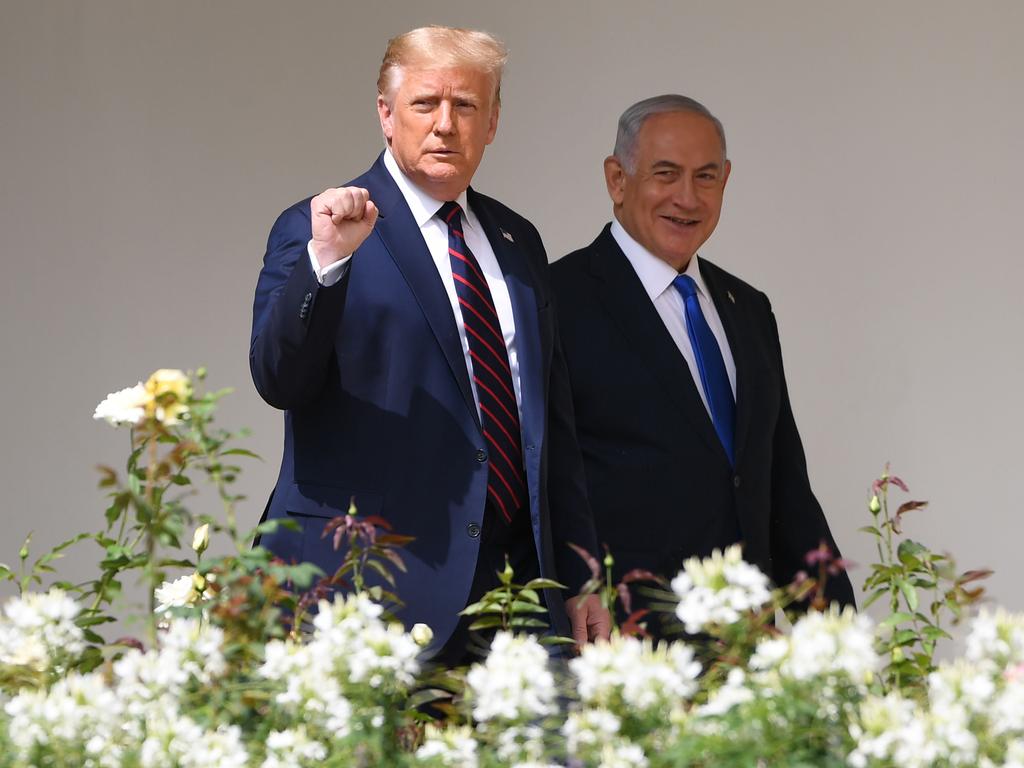
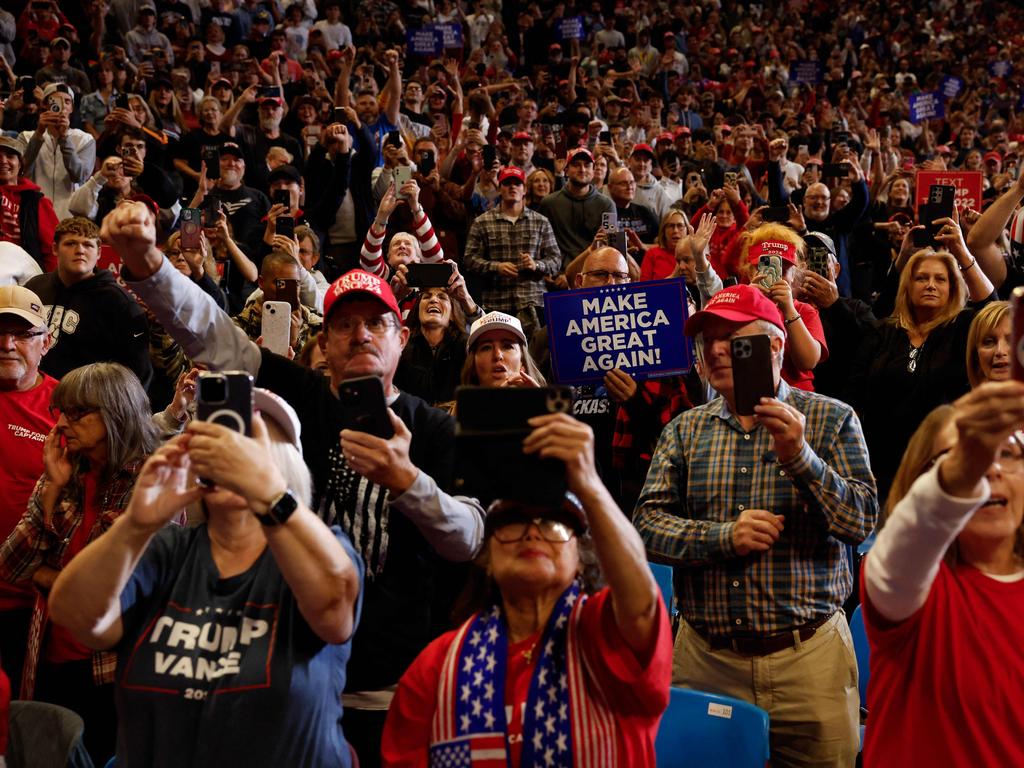


To join the conversation, please log in. Don't have an account? Register
Join the conversation, you are commenting as Logout